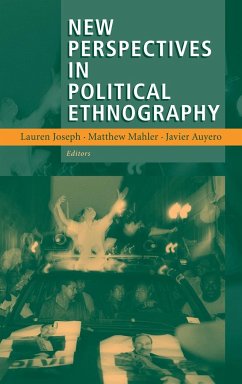The use of ethnographic research - social research based on the observation of individuals or institutions where the researcher becomes part of the group or very close to the group to better understand their actions - is becoming more and more of a prevalent methodology within sociology. As ethnography gains prominence within the discipline its focus, theoretical underpinnings and narrative styles are also expanding to the yet-unexamined worlds and institutions of society.
Politics, political institutions, and those working in politics (state officials, politicians and activists) have so far missed the lens of the ethnographer. As a group, politicians and those in politics can be found in every corner of the world. While political systems and politicians are by no means the same in every country, what brings these people together to be part of the political process?
Ethnography is uniquely equipped to look microscopically at the foundations of political institutions and their attendant sent of practices, just as it is ideally suited to explain why political actors behave the way they do and to identify the causes, processes and outcomes that are part and parcel of political life. The volume, based on a special issue of Qualitative Sociology has a two-fold purpose: to bring politics into the ethnographic literature and of ethnography in studies of politics. The case studies included are based on the research of ethnographers studying the various level of politics in Brazil, Japan, El Salvador, Bosnia, the Philippines, India and the United States. It will be of interest to those in the sociology of politics, political science and those looking for ethnographic research on a global level.
Politics, political institutions, and those working in politics (state officials, politicians and activists) have so far missed the lens of the ethnographer. As a group, politicians and those in politics can be found in every corner of the world. While political systems and politicians are by no means the same in every country, what brings these people together to be part of the political process?
Ethnography is uniquely equipped to look microscopically at the foundations of political institutions and their attendant sent of practices, just as it is ideally suited to explain why political actors behave the way they do and to identify the causes, processes and outcomes that are part and parcel of political life. The volume, based on a special issue of Qualitative Sociology has a two-fold purpose: to bring politics into the ethnographic literature and of ethnography in studies of politics. The case studies included are based on the research of ethnographers studying the various level of politics in Brazil, Japan, El Salvador, Bosnia, the Philippines, India and the United States. It will be of interest to those in the sociology of politics, political science and those looking for ethnographic research on a global level.
From the reviews:
"Provides thick examples of ethnography in action and conveys the unique value of ethnography as an effective research tool for exploring political phenomena. ... appeal to practicing social scientists ... . inspire students to pursue their passion to study politics ... both real and imagined - to master the quantitative methodologies that characterize political science today. ... collections will be worthwhile reading for scholars and graduate students, and essential reading for an undergraduate intent on a career in political science." (Jeffrey D. Hilmer, Acta Politica, Vol. 46 (1), 2011)
"Provides thick examples of ethnography in action and conveys the unique value of ethnography as an effective research tool for exploring political phenomena. ... appeal to practicing social scientists ... . inspire students to pursue their passion to study politics ... both real and imagined - to master the quantitative methodologies that characterize political science today. ... collections will be worthwhile reading for scholars and graduate students, and essential reading for an undergraduate intent on a career in political science." (Jeffrey D. Hilmer, Acta Politica, Vol. 46 (1), 2011)








